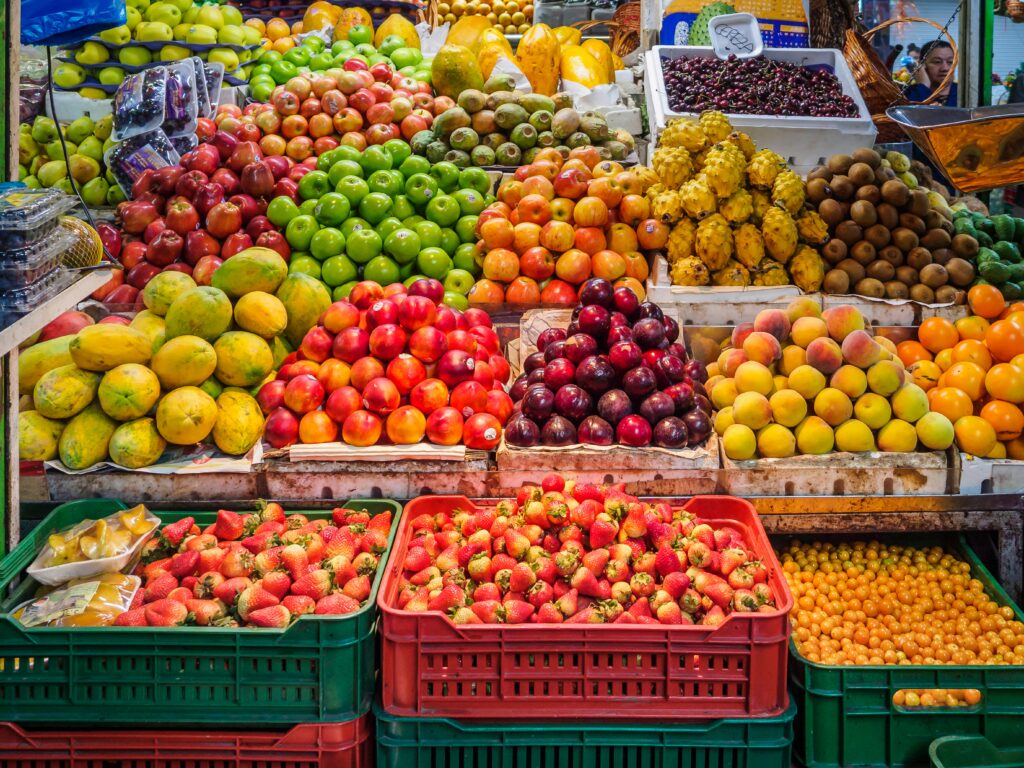
As we noted last time, a key word in the Bible for the generosity of God is the word abundance. It’s a fairly straightforward concept: an abundance is more than you need, a surplus. In the extreme, it’s an overflowing, even an effective lack of limitation—there’s always more, like bananas or mangoes or papayas in the tropics.
When I was a boy, we lived on a 2-acre farm in Greenacres (now part of Spokane Valley), Washington. We grew our own beef and vegetables, and a little fruit, and in retrospect I realize that we had a good supply of food, but we didn’t have much money. (As I recall, Dad made $75 a week in his job at the time.) I learned early on that when I poured syrup on the pancakes, Dad would intervene—forcefully—if I overdid it. “What, do you think we’re made of money?” As I watched the little dribble of syrup disappear into the pancake, I felt really, really poor. (Pun absolutely intended.)
A bit later we moved back East, and with Dad making a little more money, we would occasionally eat out in a restaurant. There was an International House of Pancakes nearby (they call it IHOP now, of course), and I noticed something when we ate there.
On the table they had not just a single bottle of syrup, but a whole rack of eight little pitchers, each of them a different flavor. And I noticed something else. Dad didn’t care how much syrup I used.
The reason is obvious—the syrup came with the meal, and you didn’t pay by the ounce, the way you did at home.
To a kid, being able to use all the syrup you want is the Millennium.
And you know what? If you like one flavor of syrup in particular, and you used up all that was in the little pitcher, you could just ask the waitress, and she’d fill the thing up again, all the way to the top!
The thing is bottomless!
No need to conserve. Use all you want. If you run out, there’s plenty more where that came from.
Abundance.
That’s how God gives to his people. He’s the kind of person who loves to pour out good things on his people, with complete abandon.
Now, while we’re defining the concept, we should recognize an abuse.
While God gives us lots of good things, he’s not primarily interested in the trivial stuff.
Sure, he knows about every sparrow that falls, and he’ll see to our tiniest needs (Mt 10.29-31). But his primary interest isn’t to make us rich, or powerful, or popular in temporal ways, and he doesn’t want that to be our primary interest either. Prosperity preachers claim to find support in biblical passages—Jos 1.7; Ps 1.3; Pr 10.22; Lk 6.38; 2Co 9.6; 3J 1.2—but in doing so they demonstrate that they’re focused on the temporal, the earthly, the comparatively trivial, and not on the heavenly treasure that God’s people are to be storing away (Mt 6.19-21). One can’t use such texts to encourage the very greed that the Scripture so roundly condemns (1S 2.29; Lk 12.15; Ep 4.19; 1Th 2.5; 1Ti 3.3). And it’s not difficult to see fruit in the lives of such preachers that undercuts the alleged biblical basis of their theology.
[Side note: there’s a lot of this kind of preaching in poor areas of the world, as you might expect. I see a lot of it in Africa. And I’m puzzled why it doesn’t seem to occur to all the thousands of people at those outdoor meetings that after all these years, they’re not getting any richer.]
In the Scripture, wealth is not proof of God’s blessing (Ps 73.12), nor is it a significant vehicle for God’s blessing (Lk 12.15). But Scripture says repeatedly that God gives abundantly (Jn 10.10).
Well then. If it’s not Bitcoin, what is it that God pours out so lavishly, so generously, so limitlessly and extravagantly, on his people?
Well, you’re going to have to wait a few days to find out. :-)
Next time.
Photo by Alexander Schimmeck on Unsplash

Leave a reply. Keep it clean.